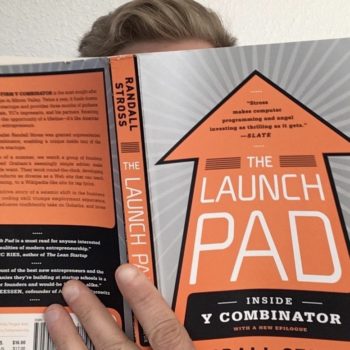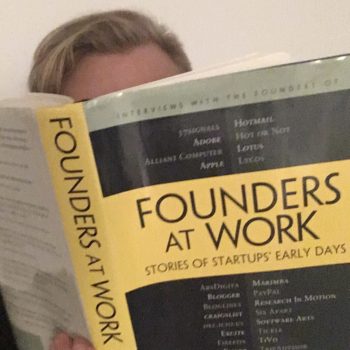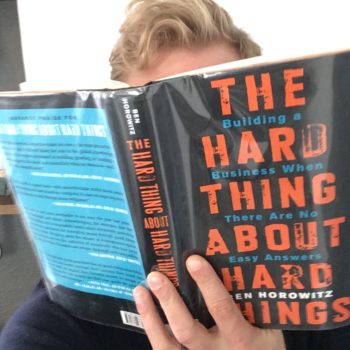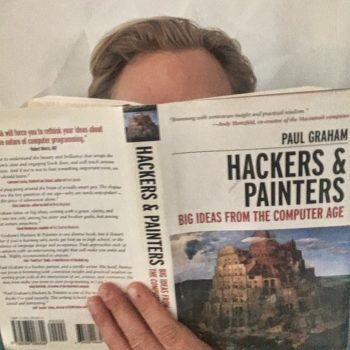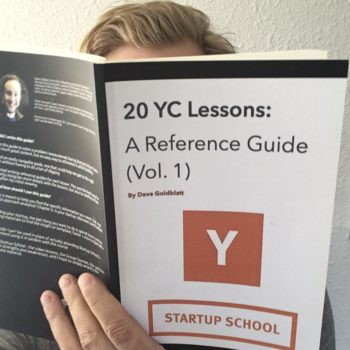How strongly do I recommend The Launch Pad?
8 / 10
Review of The Launch Pad
As a long time member of Hacker News, I’ve read about Y Combinator and roughly understood it. But this book provided a new perspective on the day-to-day environment and program mechanics.
The Launch Pad suggests that Y Combinator is really about Paul Graham wanting to teach and if you’ve read Hackers & Painters or Graham’s interview in Founders at Work, you’ll see that Y Combinator is the culmination and manifestation of Graham’s vision for startups.
I recommend this book for developers with an entrepreneurial spirit, even those without interest in founding a startup.
Top Ideas in This Book
- In preparation for Demo Day, the most successful Y Combinator startups are the ones that completely remove distractions including family, friends, and social life
- Other incubators like Techstars want founders to focus on funding, but Y Combinator is all about building product
- Y Combinator funds for the team and pivot, not the original idea
- Write code and talk to customers
- People work harder on difficult problems than mundane problems
- Two to three founders is the right number to make prompt decisions
- YC wants to see revenue, ideally 10x growth week over week
- Venture capitalists at Demo Day want to see businesses that will grow very quickly if a ton of money is applied
- When being rejected, listen to the answer, don’t debate the reason
- Your engineers probably need presentation coaching
In preparation for Demo Day, the most successful Y Combinator startups are the ones that completely remove distractions including family, friends, and social life
Startups accepted to Y Combinator have three months before Demo Day, where they will present to hundreds of investors.
Leading up to Demo Day, the YC advisors want startups to remove all distractions. Eat, exercise, code, and talk to customers. Oh, and move to Mountain View for three months.
This exclusionary lifestyle requirement limits the types of founders that apply and are accepted to YC. You’re basically talking about young, male, and relatively well off covers 90% of the pool.
Other incubators like Techstars want founders to focus on funding, but Y Combinator is all about building product
Y Combinator created the accelerator model, but many others like Tech Stars have followed.
However, other incubators often require or encourage founders to chase VC investment during the program in a 50/50 time split. YC doesn’t want that.
YC just wants their founders focusing on product until Demo Day, where they’ll naturally be exposed to hundreds of potential investors.
Y Combinator funds for the team and pivot, not the original idea
YC partners want the founding team to arrive with a good idea, one that can grow quickly. But it’s also not a prerequisite.
“Fund for the pivot,” is a common phrase repeated by Paul Graham, YC co-founder. By that Graham means the team is smart and shows promise, so they’ll probably figure out their original idea is bad and pivot into something with higher potential.
Write code and talk to customers
Programmers like programming, not necessarily talking to customers. Knowing this, YC advisors harp on them to talk with customers.
This is where some startups are helped by having a third, non-technical founder with an outgoing personality – someone who feels natural talking with prospective customers.
People work harder on difficult problems than mundane problems
Some startups look for the easy win, a small problem with a straightforward solution. That’s not the kind of problem YC wants founders to solve.
YC wants startups to solve a difficult problem, where they can create a competitive advantage.
Fortunately, people find encouragement in difficult problems. Immersing yourself into a difficult problem is easier than a mundane problem.
Two to three founders is the right number to make prompt decisions
Startups can’t feel like the United Nations. As Graham puts it, “Here, we don’t fire you. The market fires you.” Decisions demand quick resolution.
At four people, startups begin introducing democratic principles and committees. At one person, starting a company is too heavy a burden.
The right number is two or three founders.
YC wants to see revenue, ideally 10x growth week over week
The YC partners want to see startups with revenue, not just user or traffic growth although those also help.
Demanding revenue forces founders to talk with potential customers and discover what they’re willing to pay for.
Venture capitalists at Demo Day want to see businesses that will grow very quickly if a ton of money is applied
VCs arrive at Demo Day looking for companies that will grow rapidly if big money is applied. VCs are not looking for consistent and stable growth. VCs want to see curves.
When being rejected, listen to the answer, don’t debate the reason
Startups seeking investment spend too much time hearing no, then trying to convince the VC that the reasons provided aren’t really problems.
Ben Horowitz, investor and author of The Hard Thing About Hard Things, says those founders are wasting their time. Just accept the no and move on.
The reasons listed are usually surface level and often hide biases like not wanting to fund female founders.
Your engineers probably need presentation coaching
Prior to Demo Day, all YC founders receive coaching on their presentation. Without coaching and explicit instruction, most are terrible presenters.
Whether pursuing a technical leadership or people management path, most software engineers would benefit from presentation coaching.
